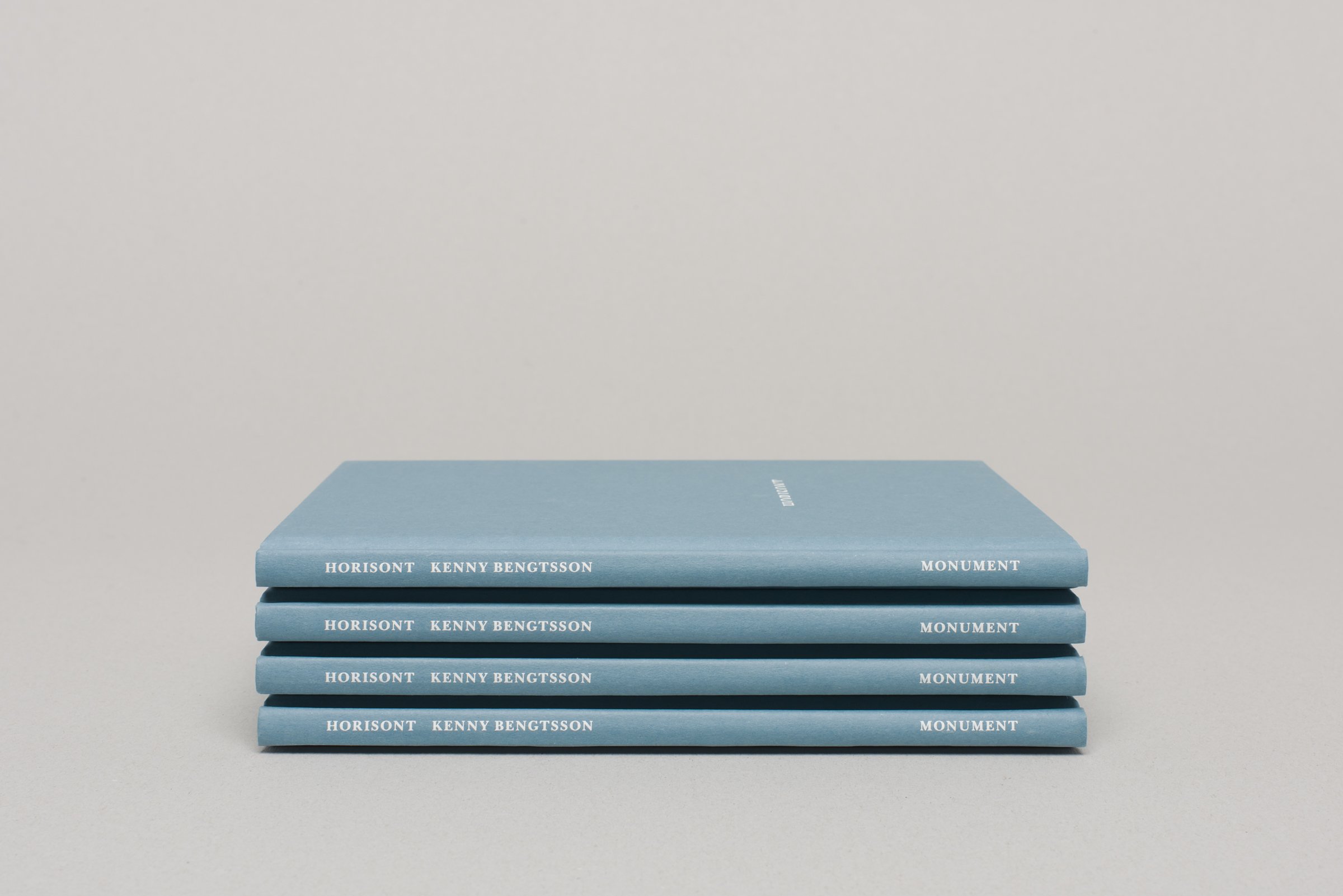 Image 1 of 14
Image 1 of 14

 Image 2 of 14
Image 2 of 14

 Image 3 of 14
Image 3 of 14

 Image 4 of 14
Image 4 of 14

 Image 5 of 14
Image 5 of 14

 Image 6 of 14
Image 6 of 14

 Image 7 of 14
Image 7 of 14

 Image 8 of 14
Image 8 of 14

 Image 9 of 14
Image 9 of 14

 Image 10 of 14
Image 10 of 14

 Image 11 of 14
Image 11 of 14

 Image 12 of 14
Image 12 of 14

 Image 13 of 14
Image 13 of 14

 Image 14 of 14
Image 14 of 14















Horisont / Horizon
Horisont
By Kenny Bengtsson
In the autumn of 2009, Kenny Bengtsson moved to Gotland. On a journey along the south coast of the island he placed a number of pinhole cameras pointing at the horizon, where sky is separated from earth. He opened the shutters and left the location. After six months he returned to collect the cameras. Without any specific purpose making the analogue images, he soon throwed them away, leaving only digital low resolution scans behind.
In Horizon, he returns to his digital archive where the images from the pinhole cameras have remained untouched until now. In an attempt to reflect upon time and narrative he uses the images as a background, hoping for some kind of redemption and clairvoyance. The images tell of a reality beyond human perception, highligting the possibilities of analog photography and human limitations.
”The word horizon derives from the Greek ”horizon kyklos” meaning ”to divide”. To me, not knowing the origin of the word until now, it has previously meant something close to the opposite, like open and wide. Just thinking of the horizon gives me the feeling of looking out, towards the ocean, mountains or something else grandiose. In the city where I live, the true horizon disappears behind an artificial landscape. Surrounding buildings form a boundary line that also blocks the sun, creating shadows that closes in. In an attempt to overcome this feeling of spatial disorientation I search for other perspectives to approach our world - as it is. – Kenny”
Horisont
By Kenny Bengtsson
In the autumn of 2009, Kenny Bengtsson moved to Gotland. On a journey along the south coast of the island he placed a number of pinhole cameras pointing at the horizon, where sky is separated from earth. He opened the shutters and left the location. After six months he returned to collect the cameras. Without any specific purpose making the analogue images, he soon throwed them away, leaving only digital low resolution scans behind.
In Horizon, he returns to his digital archive where the images from the pinhole cameras have remained untouched until now. In an attempt to reflect upon time and narrative he uses the images as a background, hoping for some kind of redemption and clairvoyance. The images tell of a reality beyond human perception, highligting the possibilities of analog photography and human limitations.
”The word horizon derives from the Greek ”horizon kyklos” meaning ”to divide”. To me, not knowing the origin of the word until now, it has previously meant something close to the opposite, like open and wide. Just thinking of the horizon gives me the feeling of looking out, towards the ocean, mountains or something else grandiose. In the city where I live, the true horizon disappears behind an artificial landscape. Surrounding buildings form a boundary line that also blocks the sun, creating shadows that closes in. In an attempt to overcome this feeling of spatial disorientation I search for other perspectives to approach our world - as it is. – Kenny”
